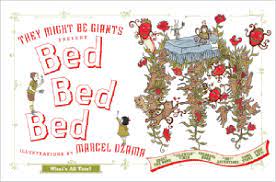In the past few days, sleep and history crossed my radar from uncommon directions. The takeaway is that present waking and sleeping patterns can be argued as relatively recent, products of the Industrial Revolution and modern conveniences such as electricity and the light bulb.
Our window for sleep is compressed compared to our ancestors, some of whom slept in two phases during the night – what’s called “biphasic sleep” – with a two- or three-hour awake period in the middle, in which they tended to chores or business, prayed, socialized, had sex or simply relaxed.
The notion first came to my attention while reading Colson Whitehead’s novel, “Harlem Shuffle.” In it, the main character, Ray Carney, recalls that one of his college business professors told students that, pre-Industrial Revolution, many people split their sleep segments during the night and got things done in-between. I thought it an interesting aside, but didn’t give it further thought.
In subsequent days, though, I came across two other stories, one on CNN’s website and one on the BBC’s site, about historic sleeping habits and “two sleeps” and what they might mean for people and health today.
According to the Centers for Disease Control, adults need at least seven hours of sleep per night, but a 2014 study found that 35.2 percent of adults were getting less than that. The CDC says that inadequate sleep is linked to an increased risk of type 2 diabetes, cardiovascular disease, obesity and depression, as well as diminished ability and chronic fatigue.
A gent named A. Roger Ekirch, a history professor at Virginia Tech, was researching nocturnal life in pre-industrial Europe and America for a book. He scanned a 17th-century English court deposition in which a young girl described the evening when her mother left their home and was later found murdered. The girl said that her mother departed after “first sleep,” and made it sound as if it were routine.
Ekirch had never seen the phrase. His curiosity piqued, he began to look for mentions of the practice elsewhere. He came across hundreds of references to “first sleep” and “second sleep” in letters, diaries, medical textbooks, newspapers, plays and songs.
Biphasic sleep is included in his 2004 book, “At Day’s Close: Night in Times Past.” Since then, he has compiled more than 2,000 references to split-sleep schedules across many languages and cultures, going back to ancient Greece.
In his research, Ekirch also came across a 1992 experiment conducted by Thomas Wehr, a psychiatrist and sleep researcher at the National Institute of Mental Health. Wehr tracked the sleep patterns of 15 men, all of whom had normal schedules – they turned in mid-to-late evening and slept straight through until morning. He reduced the number of “daylight” hours the men experienced from 16 to 10 each day, then put them in darkened environments for the remaining time.
After 30 days, the men no longer slept in one long stretch, but gradually split their sleep periods into roughly equal halves, with a 1-to-3 hour awake period in the middle. In effect, Wehr recreated biphasic sleep.
Reading about Wehr’s experiment “was, apart from my wedding and the birth of my children, probably the most exciting moment in my life,” Ekirch told the BBC, which conveys a little about how academics are wired.
When he contacted Wehr and shared his own historical findings, “I think I can tell you he was as exhilarated as I was.”
Researcher Benjamin Reiss, chairman of the English department at Emory University in Atlanta, is among those who think current sleep patterns have a capitalistic, mercenary component, a point he argues in his book, “Wild Nights: How Taming Sleep Created Our Restless World.”
“The answer is really to follow the money,” Reiss told CNN. When it became more efficient and productive to have large numbers of people show up to work at factories, sleep schedules became squeezed and consolidated, Reiss says. Sleep also became associated with laziness, and productivity and working without sleep signs of strength.
In Whitehead’s novel, a terrific read by the way, Carney toggles between respectable businessman and shady dealer. He adopts the practice of split sleep for a period. He uses the French word, “dorveille,” to describe it, but spells it phonetically – dorvay. “Dorveille” technically means the dreamlike, semi-conscious state between waking and sleeping, but Whitehead uses it as a literary device – he titles the middle segment of the novel “Dorvay” – and Carney uses it to mean the active, awake period between sleep periods.
“Carney knew crime’s hours when he saw them – dorvay was crooked heaven, when the straight world slept and the bent got to work. An arena for thieving and scores, break-ins and hijacks, when the con man polishes the bait and the embezzler cooks the books. In-between things night and day, rest and duty, the no-good and the up-and-up. Pick up a crowbar, you know the in-between is where all the shit goes down.”
Scholars and researchers find Ekirch’s work interesting, but stop short of concluding that biphasic or multi-phase sleep patterns were the norm. Brigitte Steger, a senior lecturer in Japanese studies at the University of Cambridge in the UK, said that she’s found no evidence or mention of “first” or “second sleep” historically in Japan. She thinks that daily behaviors and sleep patterns are cultural.
Insomnia is a prevalent sleep disorder, particularly in the middle of the night when people wake up and are unable to get back to sleep quickly. Ekirch wonders if it’s a disorder or a physiological throwback to our ancestors.
Modern life and conveniences probably make biphasic sleep impractical for all but a few. It may be simply a previous behavioral pattern based on what was known and available, such as changing clothes rather than bathing, or eating only two meals a day. Pace of life all but guarantees that we will continue to wrestle with sleep going forward. I promise that I won’t take offense if any of you use this post as a sleep aid.






